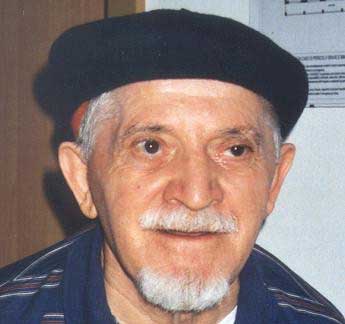Daniel Comboni
Comboni Missionaries
Institutional area
Other links
Newsletter
In Pace Christi
Bisesti Mario
He was born on 28 July 1923 at Acerra (Naples). He took his first vows on 2 February 1957 in Florence and made his final profession on 2 February 1963 in Spain. He worked in Ecuador from 1963 to 1981 and from 1986 to 2000, 22 years in all. He died on 9 October 2005, in Milan.
Joining the Institute when he was already an adult, he placed his abundant energy at the disposition of the missions. Apart from 7 years in Spain and 4 in Italy, he spent the rest of his entire missionary life in the missions of Esmeraldas. He was one of the first to go to Ecuador, one of the “pioneers” in those difficult beginnings.
He had no specific profession, but possessed a good, strong and resolute character. He was intelligent and courageous. His work is not to be measured in great projects but in the faithfulness with which he lived the two main aspects: first of all, that of the traditional Brother “ad om-nia”, busy with the well-being of the confreres and meeting their needs, and secondly in looking after the buildings and the other needs of the various missions.
In the places where he worked, he was known for his tireless physical activity: providing what was necessary for the community, cleaning, keeping good relations with the people nearby and the employees. With regard to this last point, he was always pleasant and jovial. He was the life of the community, something he showed especially during large Comboni gatherings. He always had a supply of anecdotes, riddles, and odd bits of news, carvings and drawings with which to enliven pleasant moments with the confreres or the people who had come for courses or meetings. Sometimes he would set up a display of newspaper clippings, sketches and caricatures of people present or well-known stories, show-ing his creative skill and intelligence in his caricatures that were both clever and good-humoured. He was very highly esteemed for this com-munity spirit with which he would end the hours of hard manual work.
For his apostolic and more specifically missionary aspect, all the con-freres remember one of his great enterprises. He was the apostle of the “slides” or still films. On his solitary “safaris” (he almost always went alone) to the various mission chapels, he would also go towns and vil-lages along the river carrying two large cases in which he had a huge magic lantern, an ancient model, that worked by kerosene lamp. This was his “combat weapon”. He would gather the people, young and old, by ringing a bell. Then the show would start. Almost always the entire village, including cats and dogs, would be present. Then Bro. Mario would bring out the lamp and suddenly brilliant colours appeared on a large white sheet, piercing the darkness of the tropical night.
The main item was made up of slides of “Kikiree”, cartoons about a black boy in the wilds of Africa whose adventures always had a positive and edifying ending. Bro. Mario enlivened the show with different tones of voice to represent the various characters in the story, the whole show accompanied by the required sound effects. Then there followed slides about the catechism, the sacraments, the commandments, sacred his-tory, the Rosary and other subjects. The hours would slip by as if by magic as the people burst their sides laughing or listened in respectful silence. At the end, all present would applaud and loudly ask for more.
In this way, never before seen in those parts, Bro. Mario evangelised the villages one after the other, along the Onzole and Santiago rivers around Quinindé, Atacames, Santa María de los Cayapas, Rioverde, as far as the “Ciudad de los Muchachos” and some urban parishes. These journeys involved great hardship, with little food, sleepless nights and long treks: the work of a front-line missionary to add to his day-to-day responsibilities.
Twenty two years of such work show how he lived fully his missionary life. And we must not forget his intense work of personal contacts, the giving of good example by word and deed, the occasional counselling word to people, his labour directed towards a great number of friends, office workers, bricklayers and workers of all kinds, simple people with whom he was always in contact. His good humour, his creativity and his spontaneous remarks were sustained by a deep religious life, by piety and availability.
Esmeraldas may thank God for having had a missionary Brother of the stature of Bro. Mario. He became ill at 78 years of age and spent the past four years at the Centre for The Sick and Elderly in Milan, preparing to meet the Lord, the Lord of the great, though unknown, missionaries.
Da Mccj Bulletin n. 230 suppl. In Memoriam, aprile 2006, pp. 31-34.

